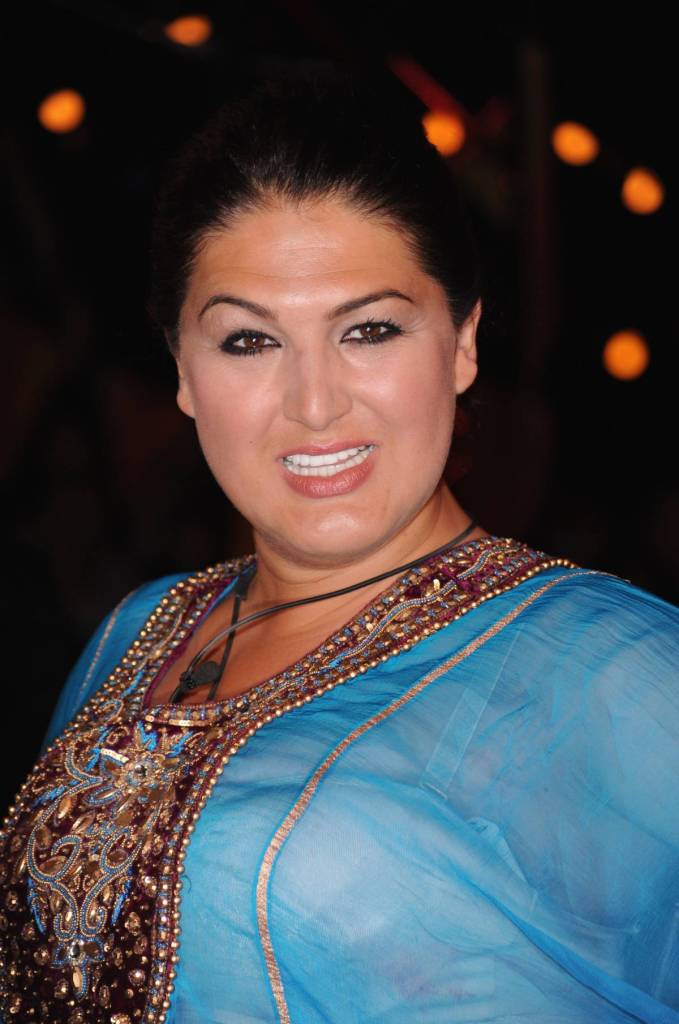Big Brother’s Nadia Almada: 20 years after winning show, I’m despondent over trans rights in UK

Big Brother’s Nadia Almada. (Getty/Channel 4)
In 2004, Nadia Almada, a proud trans woman, won the biggest reality show in the UK, Big Brother. Almost two decades on, she discusses how the nation has slid backwards on trans rights, and why the prime minister has “blood on his hands”.
Nadia captured viewers’ hearts as one of Big Brother’s most radiant, glamorous contestants ever when she competed in – and won – the fifth series.
For queer people coming of age, it was a watershed moment. Nadia was, for many, their first glimpse at trans representation on television.
Though Nadia didn’t discuss her gender with her housemates, she was introduced to viewers as a trans woman.
“When I did the show, my T&C, my small print was: I’m coming in as Nadia, Nadia Almada. It was never meant to be a secret,” she tells PinkNews.
The media, she says, focused heavily on the fact she hadn’t spoken about being trans with her housemates and “kind of made it into a secret, because trans people are supposed to be a secret, fetishised”.
“I just wanted to strip away all the layers that had been given to me throughout the years,” she adds.
“And then for the first time, I saw that show, I saw the essence of the show which is that kind of interactions and relationship-building, the humour and just being one’s true self. And I needed that to fully understand who I am.”
When Nadia came out of the house, victorious, she was met with love and adoration from the majority of fans.
“I had to process the acceptance and love from the people, from the fans of the show, from the nation – both countries, Portugal and the UK.”
It was something that felt new to her. Living in the UK, at the time, there were no protections for trans people from discrimination – the Equality Act was six years away – and she would be “called all types of things on the streets”.
It was a hard experience for her, but she came to “reclaim the power” of being trans. Now, she empowers herself with the knowledge that she is Nadia Almada, a trans woman.

Almost two decades on from her Big Brother win, it seems surreal that a trans woman was able to compete on – and win – such a high-profile TV show without intense blowback from the media, politicians and society.
Sadly, support for trans people and their rights has been on the decline in the UK for a number of years, fuelled by right-wing newspapers, news channels and politicians who’ve decided to use trans people as culture war fodder.
Nadia is “very aware of the current climate” in the British media. She says it’s “dehumanising our community” and the person that she is “so proud” to have become. She looks at it as “recycled homophobia” perpetuated by those in power.
She points to Rishi Sunak, who was heard mocking trans women in video obtained exclusively by PinkNews in June.
“When you have a not-elected prime minister that makes derogatory comments about trans women and body parts and all that stuff, that’s not a good light,” she says.
Of Sunak and other “trans-exclusionary” voices, Nadia adds: “They are very much creating a narrative of predators, of sexualisation, of vulnerable people, of the mutilation of kids – all of these things.
“But they’re not sitting down and having a conversation. They don’t want to listen.
“They have this narrative, and they’re gonna go all the way with that. And I’m not OK with that. I am very despondent with that. It’s almost like divide and conquer… That’s why we, more than ever, it’s important to have trans visibility and trans representation in the media, in our politics, in our schools, in everywhere, in every facet of our lives.
“Because guess what? We’re not going anywhere. We are your cousins. We are your mothers. We are your wives. We are your aunties. We are divine entities.”
Nadia says what’s truly “scary” is that people who speak out against the trans community, like the prime minister, have children who could grow up to be part of the LGBTQ+ community. So their words now are “harming their own children”.
“When they look down at their children and put them to bed, that [could be] a non-binary person in your future. That is maybe a genderqueer person in the future. So they’re not [just] harming us, but they’re harming their own children as well. We come from all facets of life, and the blood is on their hands.”
Nadia Almada spoke to PinkNews on behalf of ICE 36.

